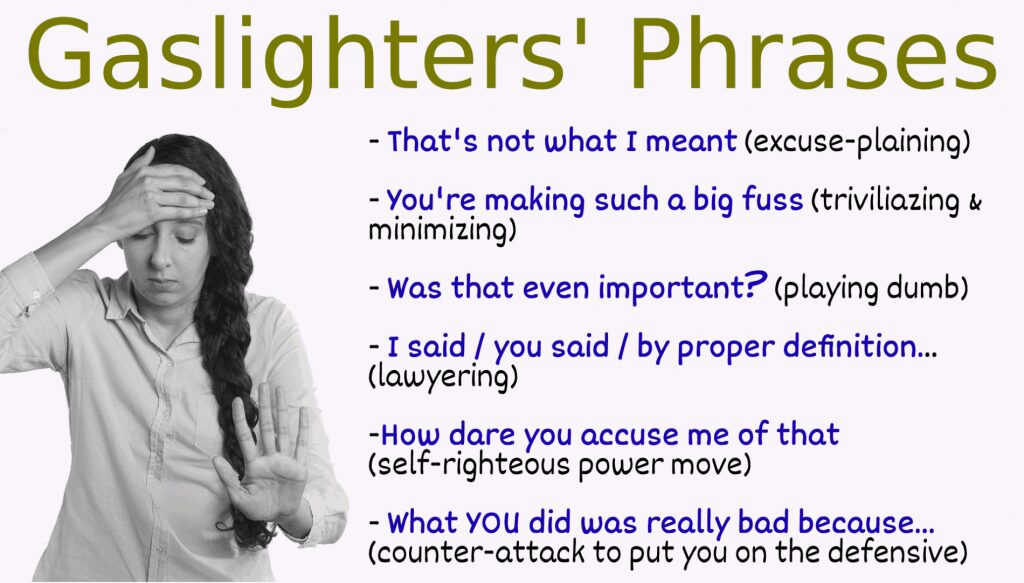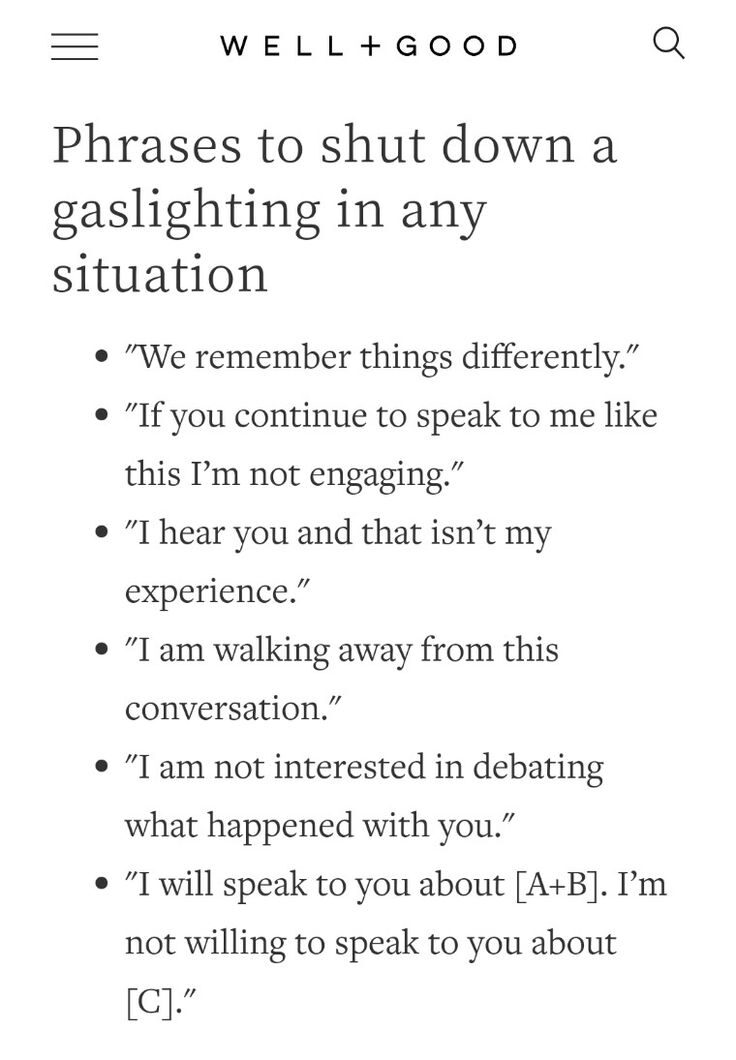
Ever felt like you’re questioning your own reality? Like you’re constantly apologizing for things you didn’t do, or doubting your memories? If so, you might be experiencing gaslighting, a form of emotional abuse that can be incredibly confusing and damaging.
Think of gaslighting like a slow drip, drip, drip of negativity. Over time, it can erode your self-confidence and make you question your own sanity. But don’t despair! By understanding the signs and learning how to cope, you can break free from this manipulative behavior.
7 Ways You Might Be Getting Gaslighted
Gaslighters are masters of mind games. Here are some red flags to watch out for:
- They Deny, Deny, Deny (Even When Evidence Screams Otherwise): Did they say something hurtful? Nope, according to them, you must have imagined it. Gaslighters will blatantly deny their actions, leaving you questioning your perception of reality.
- They Twist Your Words and Memories: Suddenly, that fight you had never happened, or what you remember them saying is completely fabricated according to their version of events. This constant manipulation can make you doubt your own memory and judgment.
- They Make You Feel “Crazy”: Gaslighters love throwing around words like “overreacting” or “paranoid” to belittle your feelings and make you feel like you’re the one with the problem.
- They Keep You Off Balance with Mixed Messages: One minute they’re showering you with affection, the next they’re cold and distant. This unpredictable behavior leaves you confused and walking on eggshells, never knowing what to expect.
- They Isolate You from Your Support System: Gaslighters often try to control who you see and talk to, making it harder for you to confide in others and get the support you need.
- They Minimize Your Achievements: Did you just land your dream job? According to them, it was “just luck.” Gaslighters will downplay your accomplishments to diminish your self-esteem and keep you feeling dependent on them.
- They Walk All Over Your Boundaries: They constantly borrow money they never repay or walk all over your schedule. When you try to set boundaries, they might guilt-trip you or make you feel selfish.
Strategies for Dealing with a Gaslighter

If you recognize these signs in your relationship, here are some steps you can take:
- Trust Your Gut: Your intuition is usually right. If something feels off, it probably is. Don’t let someone gaslight you into ignoring your inner voice.
- Document Everything: Keep a journal or record conversations to track their behavior and have evidence if needed.
- Set Boundaries: This can be difficult, but it’s crucial. Clearly communicate what you will and will not tolerate and stick to your guns.
- Limit Contact: If possible, create distance between yourself and the gaslighter. In extreme situations, consider going no contact at all.
- Seek Support: Talk to a trusted friend, family member, or therapist. You don’t have to go through this alone.
- Focus on Self-Care: Gaslighting can take a toll on your mental and emotional well-being. Prioritize activities that make you feel good, like spending time with loved ones or pursuing hobbies.
- Remember, You’re Not Crazy: Gaslighters often try to make you feel like you’re the one with the problem. Don’t let them manipulate you. Your feelings are valid.
Conclusion
Gaslighting can be a complex and damaging form of abuse. However, by recognizing the signs and taking steps to protect yourself, you can break free from this manipulative behavior and reclaim your sanity. Remember, you are strong and deserving of healthy, respectful relationships.
You Might Also Like….
- Signs you’re in a toxic relationship
- Blooming Love: 7 Signs You’re in a Happy, Healthy Relationship
- How to create a relaxing self-care routine at home
FAQs
Q1: Can gaslighting happen outside of romantic relationships?
Absolutely. Gaslighting can occur in any type of relationship, from friendships to family dynamics to even work environments.
Q2: Why do people gaslight others?
There are many reasons why someone might gaslight another person. They might seek to control the relationship, maintain power, or avoid taking responsibility for their own actions.
Q3: Is gaslighting the same as occasional lying?
No, gaslighting is a more systematic and deliberate form of manipulation. It’s about creating a sustained pattern of doubt and confusion in the victim.
Q4: What if I’m afraid to leave the gaslighter?
Leaving an abusive relationship can be incredibly difficult, especially if you’ve been conditioned to feel dependent or fearful. Here are some resources that can help:
- The National Domestic Violence Hotline: 1-800-799-7233
- The National Network to End Domestic Violence: National Network to End Domestic Violence
- The Rape, Abuse & Incest National Network (RAINN): Rape, Abuse & Incest National Network (RAINN)
Q5: How can I heal from the effects of gaslighting?
Healing takes time and self-compassion. Therapy can be incredibly helpful in processing the experience and rebuilding your self-esteem. Focus on surrounding yourself with supportive people and engaging in activities that build you up. Remember, you are not alone, and there is hope for a brighter future.

